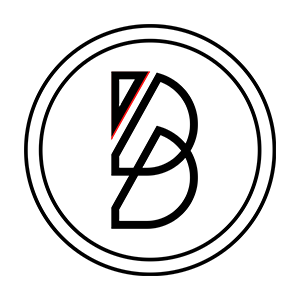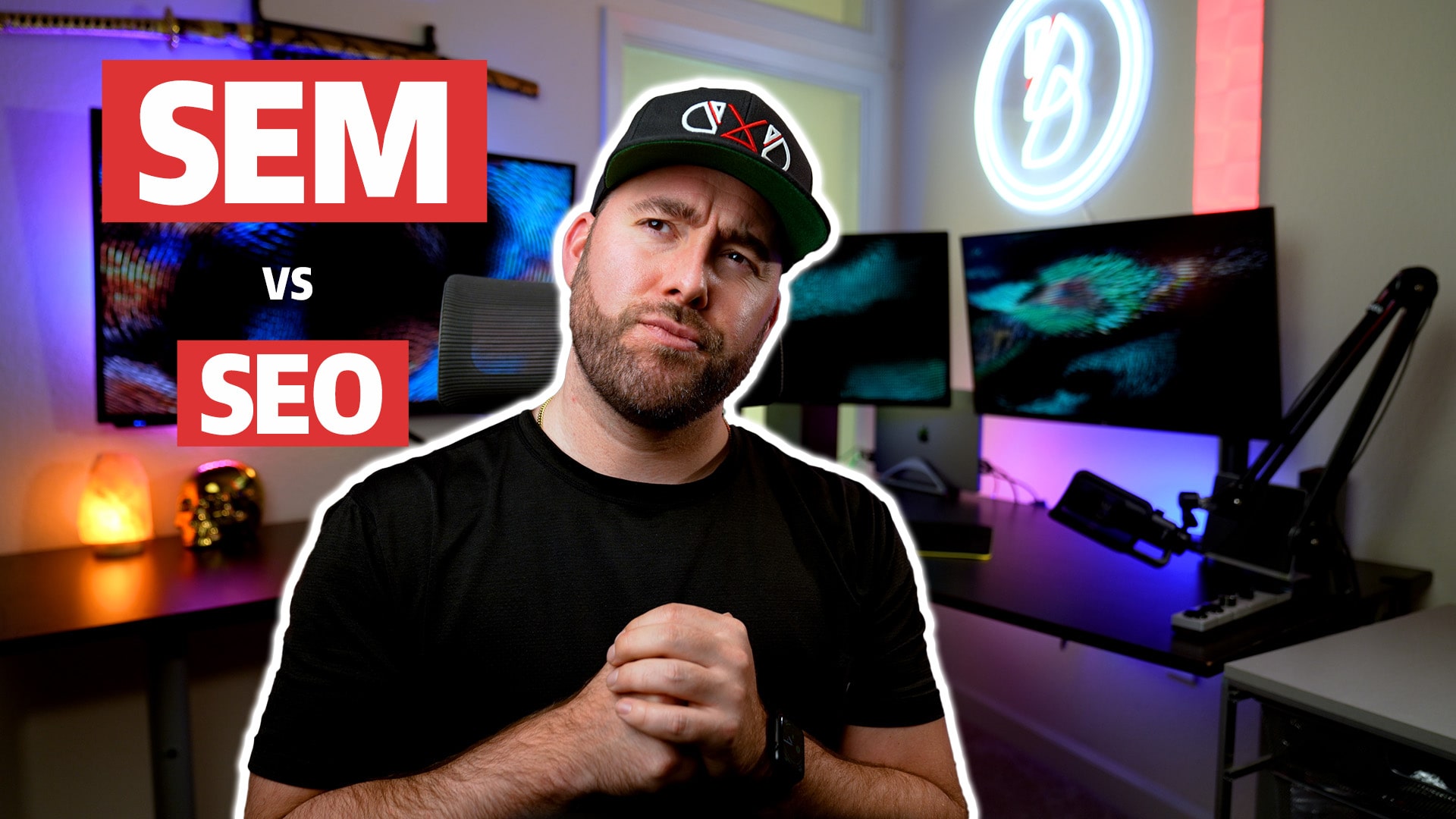Ahh, the two terms that begin with “Search Engine”. Explaining how important both of these things actually are, can be summed up in one sentence.
They both have career paths dedicated to both.
Naturally, this can come off as quite intimidating when you consider all the technological know-how required to do either of these things at an expert level.
But the ceiling for competency in either is not that high if you’re a small to medium-sized business. But first, let’s explain the differences and educate you on both of these things, in the easiest way possible.
What SEO and SEM Actually Are
These two terms can be difficult to comprehend if you’re coming in fresh. So, let’s get down to explaining them both in a way you can understand.
SEO
Out of the two, SEO is probably the one you’ve heard the most about. It’s actually quite hard to ignore if you’re involved in building a website.
It stands for Search Engine Optimization. SEO has one big benefit compared to SEM. It’s entirely skill-based!
It’s also free. The only limits are time, knowledge, and man power. Because of this, SEO agencies are prevalent and make good money handling this for businesses around the world.
To explain the generic goals and processes of SEO would take too much time, so we’ll use broad examples. See below for the general approach:
- Choose a word that’s relevant to your business. If it’s about dogs, you can select “Bernese Mountain Dog” if that’s what you want. This becomes your “SEO Keyword”.
- Start using that keyword on your website, and in your content.
- Make said content excellent, and post it on a schedule.
- After a few weeks, or months, you will appear on search engine results for people searching about “Bernese Mountain Dog”. Simple!
Following the above will get you onto a search engine, but there will be thousands of other websites doing the same as you just did. That’s where the optimization part of SEO kicks in. You can find several techniques here if you’d like to jump into the fray yourself.
SEM
SEM is for when you’ve got a bit of budget behind your belt, and you want to get straight to the heart of the search engines!
It stands for Search Engine Marketing. It shares some similarities with SEO, it’s brother in arms, except this is the paid option and operates slightly differently.
Ever searched on Google and found results that have “Ad” near the bottom left of it? That’s a company who’s used SEM to appear straight onto your search results.
Now, if anyone with a few dollars could use SEM, Google would be in trouble trying to sort out which link should be where. So instead, SEM is about choosing a keyword, similar to SEO, yet you bid on the keyword.
The higher the bid for the keyword, the higher you’ll be in people’s search results. That’s the basics of it.
How Are SEO and SEM Different?
There are a few key differences. For example, the main point is SEO is free, and SEM is paid. There’s really no system in Google that you can pay into to improve your SEO. You can hire SEO agencies and experts, but that’s a hiring cost, not a system cost.
How SEO Is Different Than SEM
SEO is essentially a language to search engines. You’re trying to speak its language the best, so it knows how to rank you in the search results.
You choose a keyword, like “kitchen towels”, and you put that keyword on your website and in your content. When the search engines crawl your home page, they’ll see kitchen towels is mentioned the most, so you’ve told them that you’re a website about kitchen towels.
Now you introduce content. Every post on a schedule tells search engines you’re up-to-date on the latest innovations of kitchen towels, as long as the content is wonderful, of course.
People start back linking to your kitchen towel content as it’s the best thing on the internet, and this tells search engines you know what you’re talking about. So, your authority goes up.
You, in turn, link to highly valuable content as well, which tells Google that yes, you know what good advice is, and can be a reliable source for people looking for an answer to their kitchen towel related questions.
And that’s a very base definition of SEO. It takes time and strategy, whilst SEM requires choosing your relevant keyword and throwing money at it. Speaking of SEM…
How SEM is Different to SEO
SEM, as stated numerous times already, is using paid options to increase your visibility on search engines. There’s a ton of confusion about the difference between SEM and PPC (Pay-Per-Click), and they’re right to be confused.
PPC is indeed a large part of SEM. But PPC can be used pretty much everywhere, on social media sites, even websites themselves, to place adverts here and there. SEM is, of course, search engine specific. So, when we say PPC in this context, it’s search engines only.
SEM is mainly operated on platforms like Google Ads or Microsoft Ads, and they give you a ton of options to get down to the specifics.
You want to target a keyword. Cool. Let’s say you’ve chosen “cartoon mugs” as you want a piece of the coffee drinking, hot chocolate devouring, tea sipping market, and you’ve got a thousand mugs that look exactly like a brand on a show with yellow characters (Sign me up!).
You’ll create a campaign. A campaign is pretty much a term for a marketing strategy, so don’t worry about specifics. You’ll then have the option to choose not only your chosen keyword, but many others.
The 4 you can choose from belong to the categories of broad match, phrase match, exact match, and negative match.
Broad means things like misspellings and synonyms, to catch those who are looking for you, but are missing the mark slightly.
Phrase means keywords that may form either a question, or a bigger term. For example, “Where can I buy cartoon mugs” and “Best cartoon mugs”.
Exact is exactly that. Your exact keyword. But with the added magic of how engines figure out context. If a user searched for “cartoon cups”, they may find you instead. Oh, the deception!
And finally, negative means keywords you want to avoid targeting. Maybe you would like to separate yourself from real life mugs? This is how you’d do it.
Then we move to targeting. You can optimize for location, when your search shows up during the day, target demographics, and even devices. Super useful if you’ve fine-tuned your target audience!
Then you move onto the meat of it. The auction. Essentially, you choose the max you’re willing to spend for one click. If it beats out competitors, you’ll show up more than them for that keyword.
But, and this is a big but, you’re also ranked on the quality of your website and content. You can look at the posts for page speed and basic SEO techniques to help with that.
You don’t stop at one campaign, however. To get the best results takes experimentation. So, don’t be afraid to change things around if the data isn’t performing in the best way you think it can!
When To Focus On SEM
Now the two options lay bare in front of you. SEO or SEM? Well, you’d choose both if you could. But let’s assume that your website, or content, is fully optimized for SEO and can’t get any better. With that in mind, this is when you focus on SEM.
You Have A Consistent Ad Budget
You’ve got money to burn, so burn that money to make more. More visibility in the search engines means more potential customers, and more profit.
Set a budget specifically for this if you can. It’ll take some time to get it fine-tuned for your keywords. A higher budget means more data to use, so it’s a double whammy from the very start if you start with a high budget!
You Can Manage A Google Ads Account
If you’ve got the skills to pay those bills, jump in and get busy with those keywords!
However, this is a full-time job on its own. If you don’t mind moderate results, you can simply input your data, and press play on your campaign. The algorithms will do the work for you.
But if you want the best results, from all of your campaigns, it might be in your best interests to hire someone to handle this full time, or an agency.
Money spent on a campaign that doesn’t have that highly skilled input, is money wasted, and the investment will pay off incredibly. But if you have the skills and the time, go get that interaction!
You Have The Ability To Launch And Test Pages
Can’t use SEM without a decent landing page! A landing page is a specially constructed page that serves a purpose. This can be sales, newsletter signups, essentially a big CTA.
Landing pages are the primary use for using SEM, as you can tailor the landing page towards a specific use and funnel people to it.
They exist as separate web pages on your website, and can be interchanged regularly to hit goals. That’s the general gist of it. Of course, without landing pages, you can simply target any existing page you have, but the outcome for the results you want, won’t be specific. You’ll just get visitors.
If you can build landing pages, absolutely go for it and get testing that SEM. If you can’t, you can still link to your home page and hope for the best.
But in everything, outsourcing for both, will always be the best option. You only have so many hours in the day, after all.
Final Thoughts
And that’s a wrap on the differences between SEO and SEM! Basically, SEO is free, SEM is paid, and whilst they’re similar in that they target keywords and both require skills beyond themselves, how to work both requires 2 different skillsets.
We recommend both to target, as no stone should be left unturned. As this is quite the time-consuming process, having skilled professionals in your corner will always benefit you more than going in alone.
Of course, there’s a ton of resources available online if you want to dive deeper into the world of SEO and SEM, just don’t forget about the basics!
General knowledge in both will benefit you when working with professionals, so do your research and know what you’re talking about when you communicate with them!

